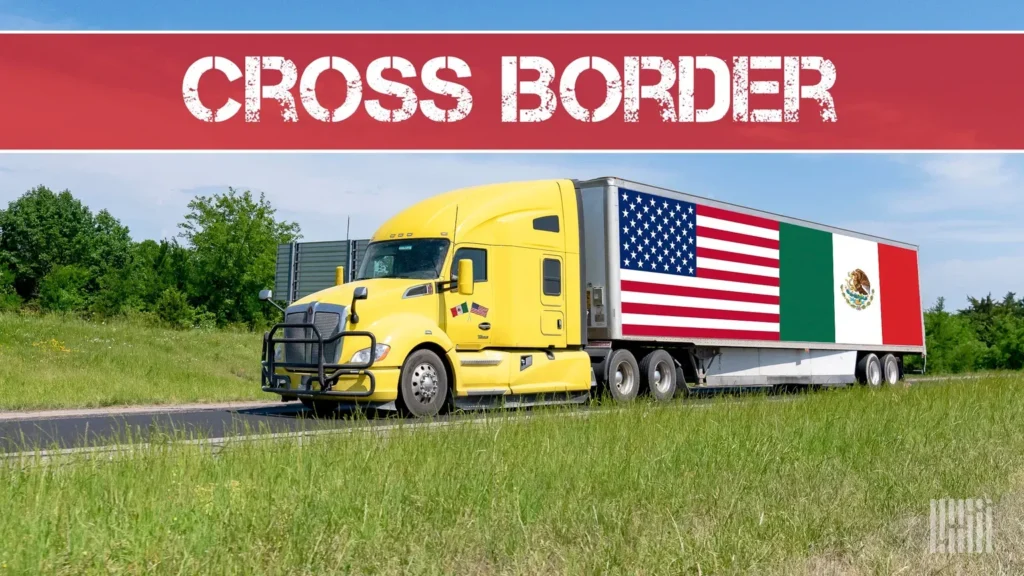Borderlands Mexico provides a weekly overview of updates regarding cross-border trucking and trade between the United States and Mexico. This week’s highlights include: the impact of tariffs and new language regulations on cross-border trucking; Kuehne+Nagel’s new logistics facility in Texas; a German automotive supplier expanding its operations in Mexico; and the Securing of a $172 million grant for the Sabine-Neches Waterway project.
President Donald Trump’s tariff strategies and new regulations are presenting both challenges and opportunities for companies involved in cross-border trade between the U.S. and Mexico.
A significant concern for cross-border trucking is Trump’s recent executive order, which enforces existing English proficiency requirements for commercial truck drivers. The policy underlines the necessity for drivers to be competent in English to read traffic signs, communicate with safety officials, and follow employer guidelines.
According to Jordan Dewart, president of Redwood Mexico, this requirement could considerably impact U.S.-Mexico trade by leading to delays at the border and added costs for shippers depending on Mexican carriers. He noted, “While we currently have a steady number of drivers, should they start to leave the market, we might face significant capacity issues since many non-English-speaking drivers come from Mexico or other countries.” Dewart emphasized that these drivers were crucial during the COVID pandemic for maintaining driver capacity.
Since February 2, Trump has initiated a series of tariffs on imports from China, Mexico, and Canada, including a 10% baseline tariff for most nations and 25% tariffs on non-compliant goods from Mexico and Canada regarding the USMCA. Thankfully, these additional tariffs do not apply to compliant imports from Mexico and Canada, allowing most products to enter the U.S. duty-free.
Despite the uncertainties caused by tariffs, cross-border trucking volumes between the U.S. and Mexico have remained strong. Dewart reported increased shipping activities, particularly in the retail sector, where the urgency to ship before peak sales seasons is high. Concerns about tariffs are prompting more inquiries from clients, including questions about foreign trade zones and customs processes.
Kuehne+Nagel Opens New Border Logistics Facility in Texas
Kuehne+Nagel, a global supply chain provider, has unveiled a new 432,000-square-foot cross-dock facility in Laredo, Texas. This new site consolidates three existing facilities and doubles Kuehne+Nagel’s capacity at the U.S.-Mexico border. The facility features 200 trailer parking stalls, 115 dock doors, and a 17,500-square-foot foreign trade zone.
German Automotive Supplier Expands in Mexico
Knipping Automotive has launched its third facility in Huamantla, Mexico, with an investment of $18 million, set to create 150 jobs. The new plant will manufacture plastic components for the automotive sector and adds to the company’s existing workforce across its locations in Germany, Hungary, and Mexico.
Sabine-Neches Waterway Project Secures $172M Grant
The Sabine-Neches Waterway is set to receive $172 million from the U.S. Army Corps of Engineers to deepen its channel from 40 to 48 feet. This enhancement will allow larger vessels to access Texas ports, benefiting the waterway industries. The waterway spans 57 miles and represents the longest federal deep-draft ship channel on the Texas Gulf Coast, with construction on this project commencing in 2019 and expected to take seven years to complete.


